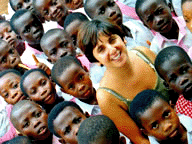.gif)
.gif)

UN to tackle Internet governance
The European decision to back the rest of the world in demanding the creation of a new international body to govern the Internet caught the

Iran pipeline sparks nuclear deal
SAKHALIN, Russia – Gazprom, the world’s largest gas firm, is eager to participate in the construction of a $7.4 billion Iran-Pakistan-India pipeline that would bring gas from the gigantic South Pars fields in Iran to the two South Asian countries, the Press Trust of India reports.
The Russian energy giant has previously held talks with authorities in

Darfur crimes could go to international court
In one recent incident, pro-government Arab militias at a refugee camp reportedly killed 34 people. According to the BBC, the attackers are believed to be Janjaweed Arab militiamen, described as criminals by the Sudanese government. The government called it the first direct assault on a refugee camp since the conflict began more than two years ago.

Protests coincide with biohazard alert
"We pretty much feel there is no public health threat here," said Von Roebuck, a spokesman for the federal Centers for Disease Control and Prevention. "We just wanted to alert the medical community to watch out for cases."

